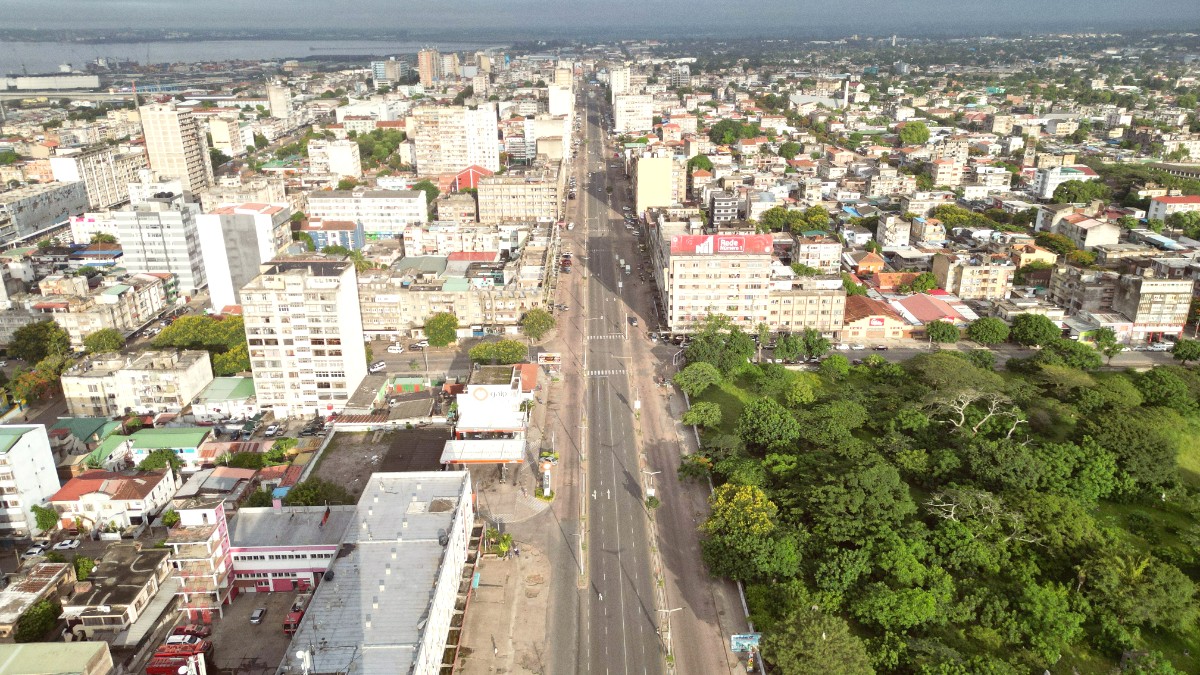
Mozambique
Maputo's position on a large bay and its proximity to islands and coastal towns make water-based activities a highlight.
Hiking and trekking opportunities are limited directly within Maputo city. The city's flat terrain is suitable for walking and cycling along its promenades. For longer, more challenging hikes, venturing outside the capital to national parks or nature reserves further afield is typical.
The main location for significant wildlife viewing near Maputo is the Maputo Special Reserve (REM). Located approximately 100 km south of the city, this reserve is a remarkable conservation success story. It is home to a growing elephant population, hippos, crocodiles, and various antelope species.
Dedicated cycling infrastructure in Maputo is limited. For leisurely cycling, the Maputo Marginal (waterfront promenade) is the most suitable and popular area. It offers a flat, paved surface ideal for a relaxed ride with scenic bay views. Urban cycling for transport can be challenging due to traffic.
For longer, more challenging hikes or treks, venturing outside the capital to national parks or nature reserves further afield is typical. These locations require dedicated planning and often a guide.
Maputo offers various avenues for cultural immersion, allowing you to connect with Mozambican traditions, arts, and community life.
Look for live performances at cultural centers (like CCFM), specific music venues, or some bars and restaurants. Traditional Mozambican dance performances are sometimes showcased at cultural events or during festivals. Observing elements of traditional ceremonies from a respectful distance might be possible if invited to a community event.
Directly within Maputo, formal community-based tourism initiatives are less common. Some specialized tour operators may arrange visits to local communities on the outskirts of Maputo. These visits focus on cultural exchange, providing insights into daily life, traditional crafts, or local projects.
Maputo hosts various cultural festivals and events throughout the year, often tied to religious holidays, national celebrations, or specific artistic themes. These can include music festivals, dance performances, art exhibitions, and food fairs. These events offer a lively and immersive way to experience local traditions.
Even simple greetings make a significant difference.
Check local calendars or inquire at the Franco-Mozambican Cultural Centre upon arrival for any events coinciding with your visit. Festivals offer an immersive way to experience local traditions.
Inquire with reputable tour companies that emphasize responsible tourism for opportunities to visit local communities on the outskirts of Maputo.
Maputo offers options for relaxation and wellness, providing opportunities to unwind and rejuvenate amidst your city explorations.
Many hotels, especially mid-range and luxury properties, have swimming pools. Some may offer day passes for non-guests, a relaxing option for a hot day.
Located north of the city, Costa do Sol is a popular local beach. While waters close to the city are not pristine for swimming, the beach has a lively atmosphere with beachfront restaurants where you can enjoy fresh seafood, listen to music, and soak in the local vibe.
Formal yoga or meditation retreats are not common directly within Maputo. Some gyms or private studios might offer yoga classes. Dedicated retreats are usually found in more secluded, natural settings outside the city. Maputo city itself does not have natural hot springs; travel to other regions is typical for such experiences.
The Franco-Mozambican Cultural Centre (CCFM) is a main venue for live music, hosting local and international artists, often featuring jazz, fusion, and traditional Mozambican music. Gil Vicente Café-Bar is a historic spot often featuring live jazz.
Maputo offers various nightclubs. Upscale clubs (Polana) play international music. More lively, authentic local nightclubs are scattered throughout the city, often playing Kizomba, Marrabenta, Afro-house, and other African music genres. These places present a chance to dance with locals and experience the city's energetic rhythm.
Polana neighborhood offers upscale bars and lounges. Along the Maputo Marginal, several establishments combine restaurants and bars, offering a lively atmosphere and often live music, specifically on weekends. Nightlife picks up after 10 PM and can continue until the early hours.
Maputo offers a diverse shopping experience, from traditional bustling markets filled with local crafts to modern malls with international brands.
Mozambique is famous for its intricate wood carvings, notably those by the Makonde people from the north. These often depict human figures, animals, or abstract forms.
Colorful, patterned traditional Mozambican cloth. You can buy lengths of fabric to use as sarongs, tablecloths, or have clothing custom-made.
As a major producer, Mozambique offers fresh, delicious cashew nuts, often roasted or spiced. They make a great edible souvenir.
For the best selection of authentic Mozambican crafts and to support local artisans directly, prioritize your souvenir shopping at Feima (Artisans Market). Be prepared to haggle politely.